10 Natural Methods To Keep Squirrels Away From Your Yard
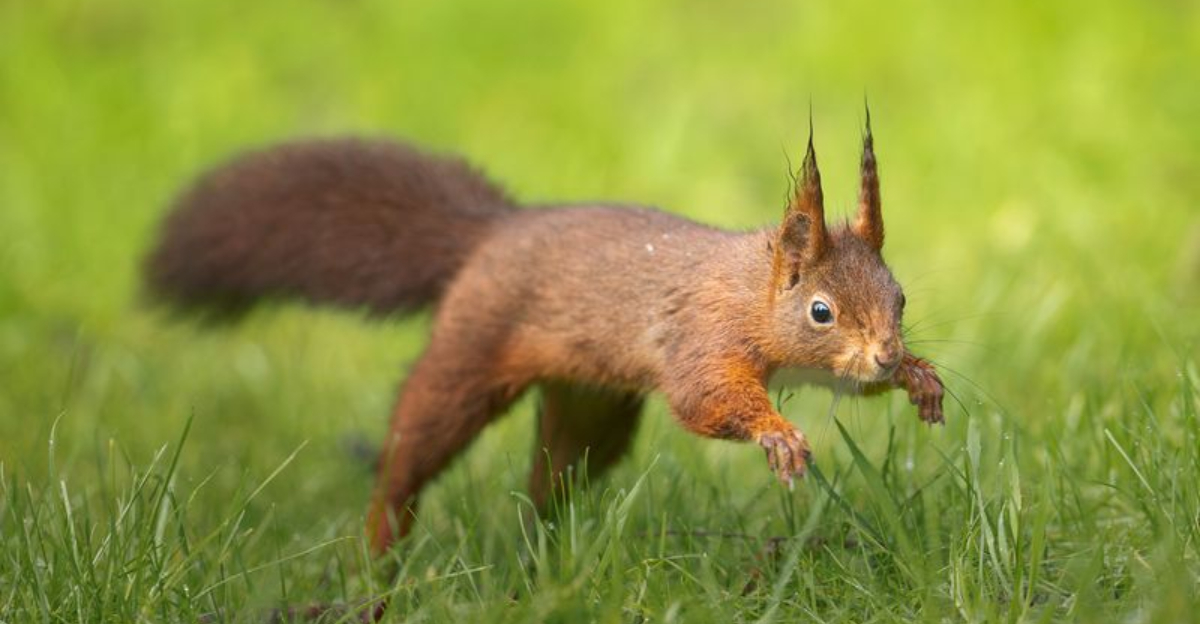
Squirrels, while cute and entertaining, can wreak havoc in your garden if left unchecked. These mischievous critters are notorious for nibbling on plants, digging up bulbs, and even gnawing on garden furniture.
Fear not! We’ve compiled a list of natural methods to keep these bushy-tailed bandits at bay, ensuring your yard remains a peaceful haven. Each method is not only effective but also eco-friendly, allowing you to enjoy a squirrel-free garden without harming the environment.
1. Plant Squirrel-Repellent Flowers
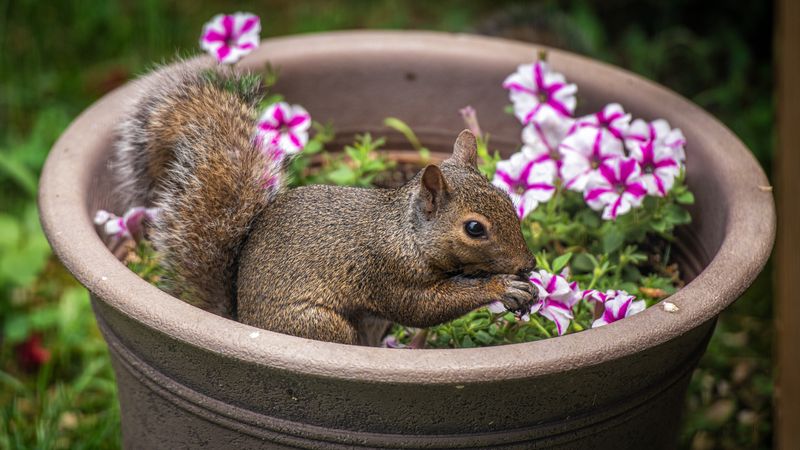
A colorful garden isn’t just a feast for the eyes; it can also be your first line of defense against squirrels. Certain flowers, like daffodils and marigolds, act as natural squirrel deterrents due to their strong scents. These blossoms are not only beautiful, but they emit odors that squirrels find unappealing. By planting these around your yard, you create a natural barrier that nudges squirrels elsewhere.
Incorporate a variety of these plants to maintain an appealing landscape while safeguarding your garden. Mixing textures and colors adds a dynamic look, ensuring your yard remains lively and attractive. Don’t be surprised if your neighbors start asking for gardening tips after witnessing your vibrant, squirrel-free oasis.
Remember to rotate your plants seasonally to keep the blooms fresh and effective. This method is not just about keeping squirrels away, but also about enhancing your yard’s overall aesthetic. So, grab your gardening gloves and make your yard a fortress of fragrance that squirrels won’t dare to breach.
2. Use Natural Predators

Introducing natural predators to your garden can be an effective way to keep squirrels at bay. Owls, for instance, are natural squirrel predators and can deter them from visiting your yard. While you might not have a pet owl handy, installing a few owl decoys can mimic their presence. These life-like figures can be placed around your yard to create an illusion of danger for squirrels.
For an added touch of authenticity, consider decoys that move or make sounds. This extra layer of realism can make squirrels think twice before venturing into your garden. It’s a clever trick that utilizes nature’s own hierarchy to your advantage.
In addition to owl decoys, you can also encourage real predators like hawks by providing a suitable habitat. Trees, perches, and a clean environment can attract these useful birds of prey. Employing natural predators is not just strategic, but a fascinating way to observe wildlife dynamics in your own backyard.
3. Apply Homemade Squirrel Repellents
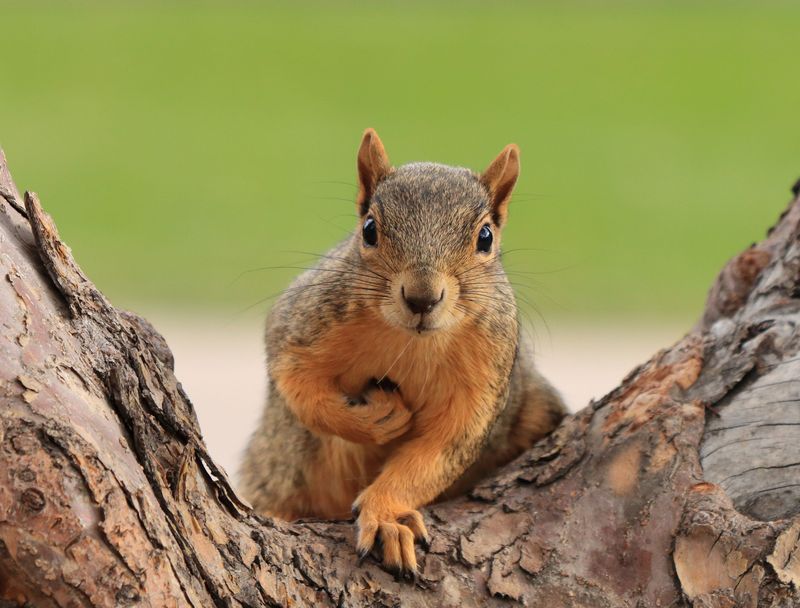
Why buy commercial repellents when your kitchen holds the key to squirrel-proofing your yard? Homemade solutions like garlic spray or vinegar mixtures are effective and cheap ways to deter squirrels. These concoctions are easy to make and can be applied directly to plants and garden structures. Their potent smell is repulsive to squirrels, sending them scampering away from your beloved greenery.
Mixing crushed garlic with water and a bit of vinegar, then spraying it around your garden, creates a formidable barrier. This blend is harmless to plants and pets but unbearable for the furry intruders. The process is simple and can be repeated as needed, especially after rain washes it away.
For those who enjoy a hands-on approach to pest management, this method is perfect. It also provides peace of mind, knowing exactly what ingredients are used around your family and pets. Make repellent application a fun gardening ritual, and keep your yard a squirrel-free zone.
4. Create Noise Deterrents

Silence might be golden, but noise can be your best friend when it comes to deterring squirrels. Motion-activated sound devices can surprise these little critters, discouraging them from returning. These devices are designed to emit sudden, loud sounds that startle squirrels, sending them scampering for safety.
Strategically place these gadgets around your yard, especially near spots squirrels frequent. The key is to catch them off guard with unexpected bursts of sound. This method is highly effective as it doesn’t rely on chemicals or traps, making it a humane option.
If you’re a fan of tech-savvy solutions, you’ll enjoy setting up these high-tech deterrents. They require minimal maintenance and can be adjusted for volume and sensitivity. Let the element of surprise work in your favor, transforming your garden into a peaceful, squirrel-free zone.
5. Install Squirrel-Proof Bird Feeders
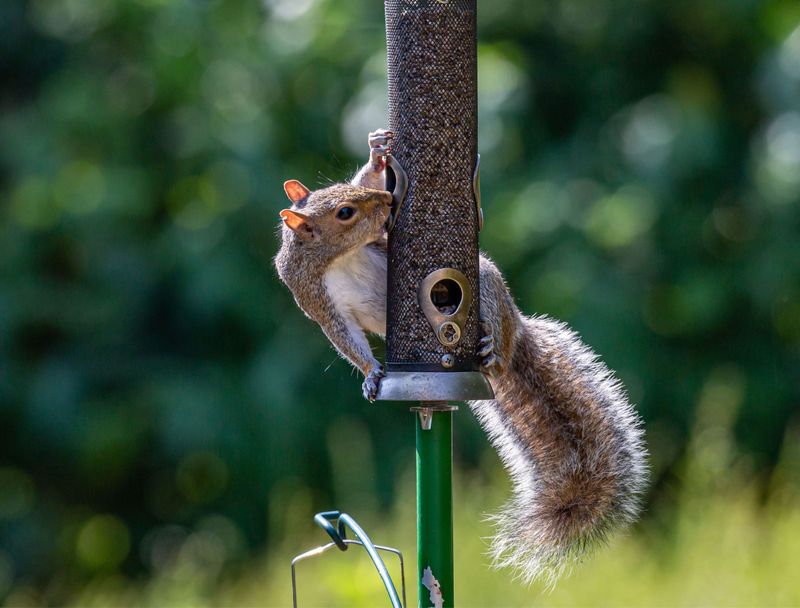
Feeding birds shouldn’t mean feeding squirrels too. Squirrel-proof bird feeders are ingeniously designed to allow birds to dine while keeping squirrels at bay. These feeders often feature weight-sensitive mechanisms that close access when something heavier than a bird attempts to feed.
Investing in one of these feeders means your feathered friends can visit without interference. They come in various designs, from classic to contemporary, suitable for any garden aesthetic. Position them away from trees or structures that squirrels could use as a launchpad.
Keeping squirrels off your feeders not only saves birdseed but also prevents these agile acrobats from dominating the feeder. Your garden will be filled with the joyful flutters and songs of birds rather than the mischievous antics of squirrels. Enjoy birdwatching without the bushy-tailed interruptions and let your yard be a true avian paradise.
6. Spread Mulch or Gravel

Mulch and gravel aren’t just for aesthetics; they can also deter squirrels from digging in your garden. Sharp or rough mulch and gravel make the soil less appealing for excavation. By spreading these materials around flower beds and garden plots, you create a scratchy surface that’s unpleasant for squirrels to dig through.
This method works best when combined with other deterrents, creating multiple layers of defense. The added bonus? Your garden gains a neat, well-maintained look that enhances its visual appeal.
Whether you choose natural woodchip mulch or decorative gravel, this approach is both functional and stylish. Choose textures and colors that complement your garden design, and watch as squirrels steer clear of your newly fortified flowerbeds. Make your garden paths the road less traveled by squirrels, ensuring your plants remain undisturbed.
7. Use Motion-Activated Sprinklers
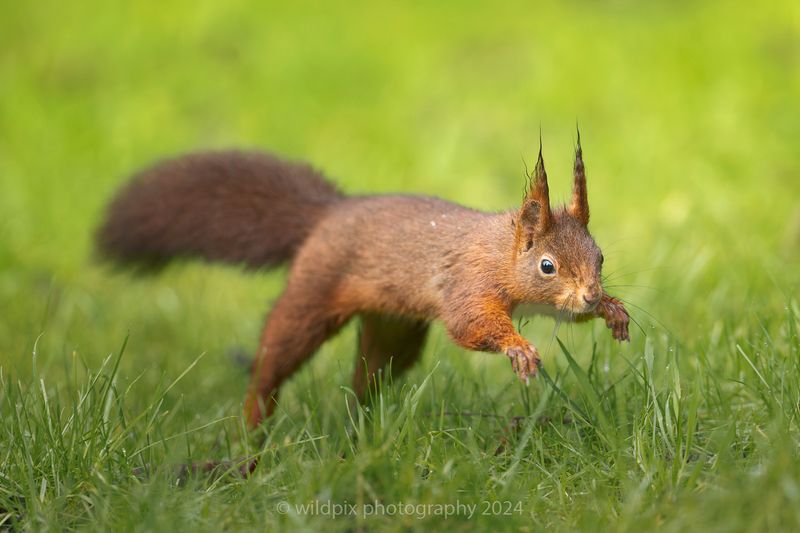
Water can be a surprisingly effective deterrent when delivered at the right moment. Motion-activated sprinklers unleash a sudden spray of water when a squirrel triggers the sensor. This unexpected shower is enough to send them running, ensuring they think twice before returning.
Place these sprinklers in vulnerable areas, such as near vegetable patches or newly planted beds. The splash is harmless yet effective, providing a fun and eco-friendly way to protect your garden. Plus, your plants get a little extra watering, which is always a bonus.
For gadget enthusiasts, setting up motion-activated sprinklers can be an enjoyable project. Adjust the sensitivity and range to suit your garden’s layout, and let these clever devices take over your pest control duties. Your plants will stay hydrated, and your yard will remain a no-squirrel zone.
8. Employ Essential Oils
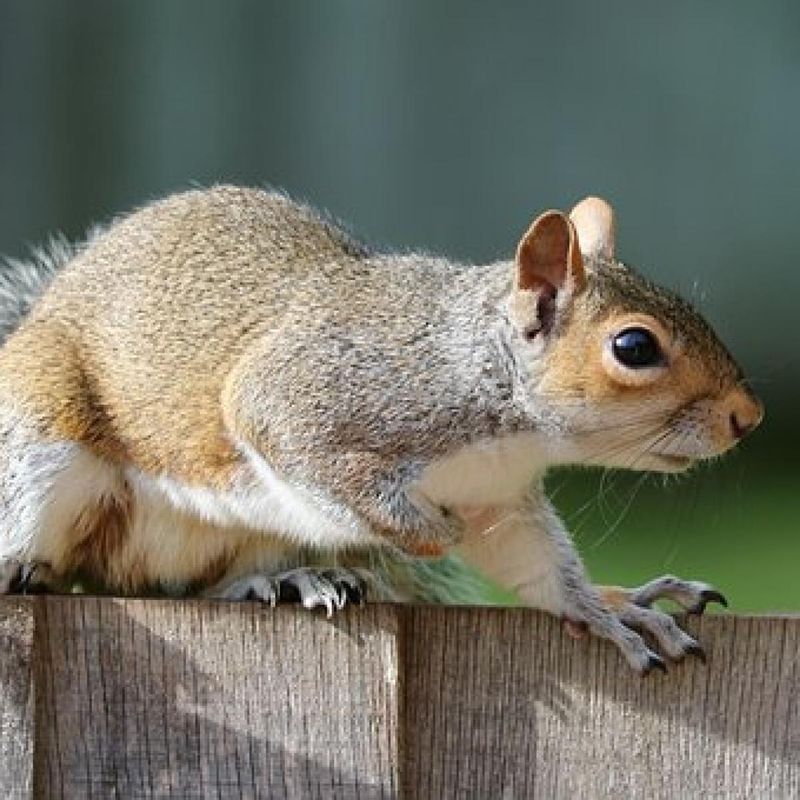
Essential oils aren’t just for relaxation and aromatherapy; they can also keep squirrels at bay. Scents like peppermint and eucalyptus are particularly off-putting to these critters. By sprinkling a few drops around your garden, you create an aromatic barrier that squirrels are unlikely to cross.
This method is not only effective but also pleasant for humans, as it fills your garden with refreshing scents. It’s an elegant solution that keeps your outdoor space smelling delightful while deterring unwanted guests. Be sure to reapply these oils regularly, especially after rain or watering.
Using essential oils as a squirrel deterrent is a simple and fragrant strategy. Choose high-quality oils and a diffuser or spray bottle for easy application. Your garden will become a haven of delightful aromas, with squirrels steering clear of the enticing but forbidden scents.
9. Build Physical Barriers
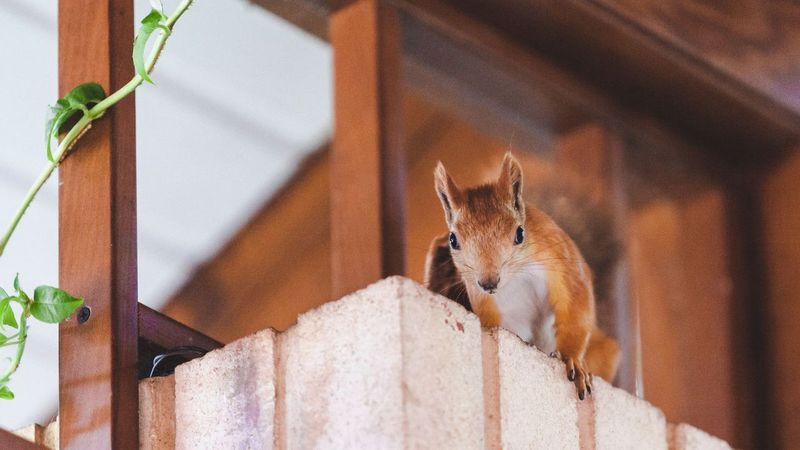
Sometimes, the simplest solution is the most effective. Physical barriers like mesh fences can keep squirrels away from your prized plants. By enclosing garden beds with wire mesh or chicken wire, you create a physical barrier that squirrels can’t penetrate. This method is especially useful for vegetable patches or areas with delicate plants.
Choose materials that blend with your garden’s aesthetics while still providing robust protection. Ensure the fence is high enough and buried a few inches into the soil to prevent burrowing beneath it.
For those who appreciate DIY projects, building these barriers can be a satisfying task. It offers peace of mind, knowing your plants are safe behind sturdy defenses. The sight of frustrated squirrels attempting to breach your barriers will bring a smile to any gardener’s face, as your plants remain untouched and flourishing.
10. Utilize Spicy Deterrents

Squirrels have a keen sense of smell, and spicy deterrents can be particularly effective in keeping them at bay. By sprinkling cayenne pepper or chili powder around plants, you create an environment that’s too hot for squirrels to handle. The capsaicin in these spices irritates their noses and mouths, convincing them to steer clear.
This method is both cost-effective and easy to implement. Simply dust the areas you wish to protect, and reapply after rain or watering. It’s an all-natural solution that won’t harm your plants or soil.
For gardeners who enjoy a touch of spice in their lives, this approach is both fun and functional. Watch as squirrels make a hasty retreat, and enjoy the satisfaction of knowing your garden is protected by a fiery, invisible shield. Your plants will thrive, undisturbed by pesky intruders.
